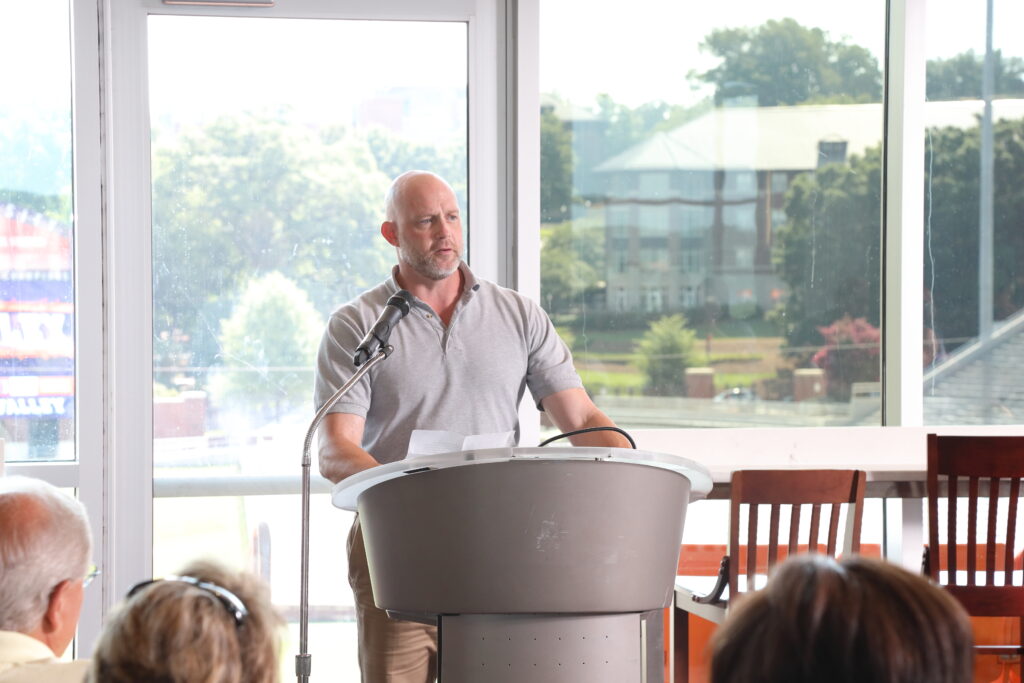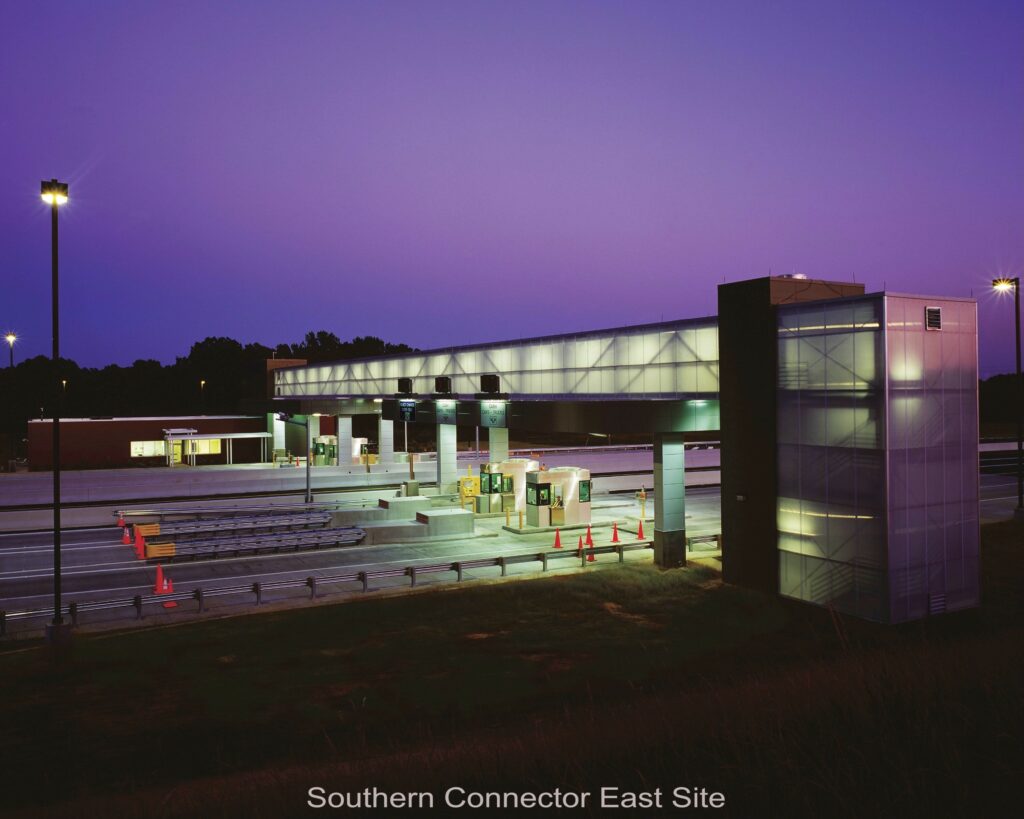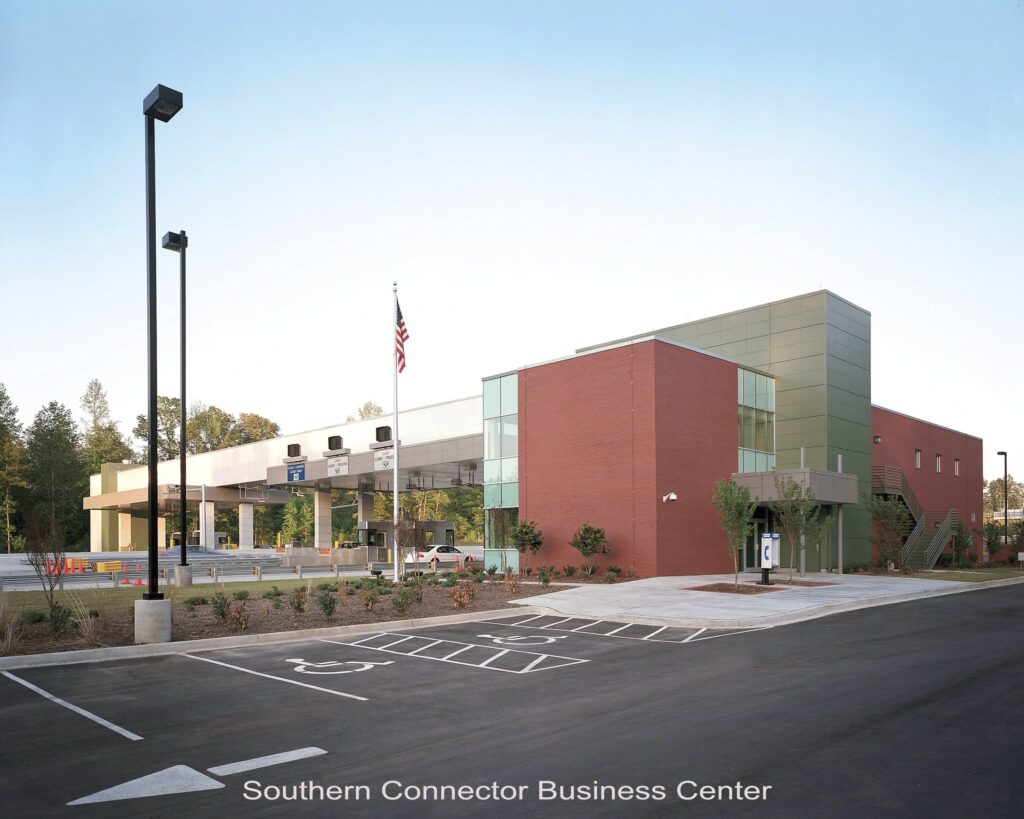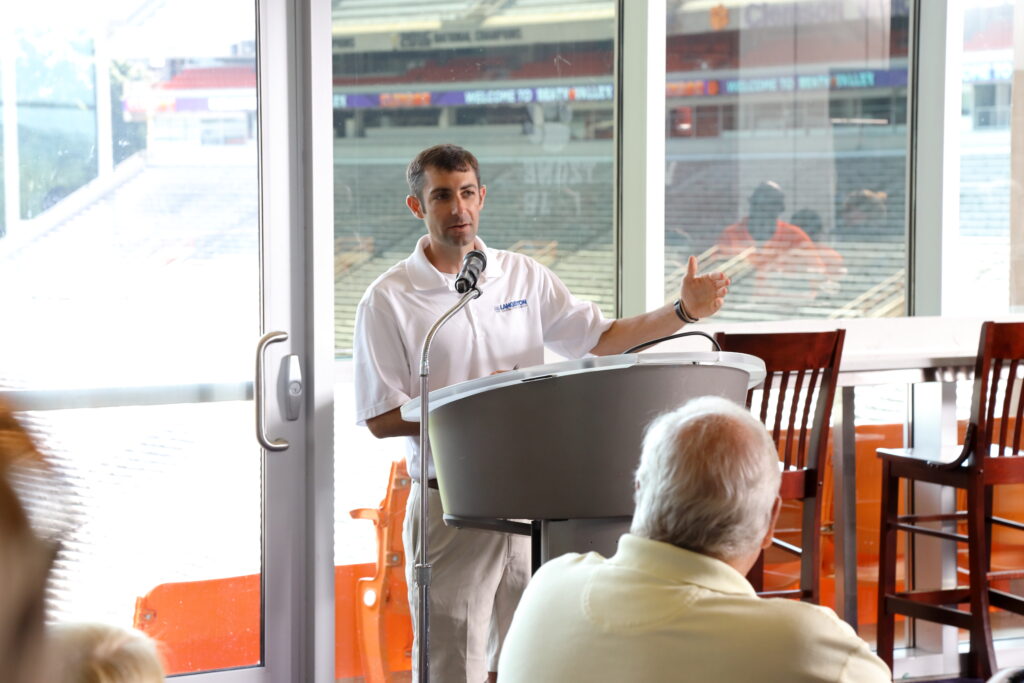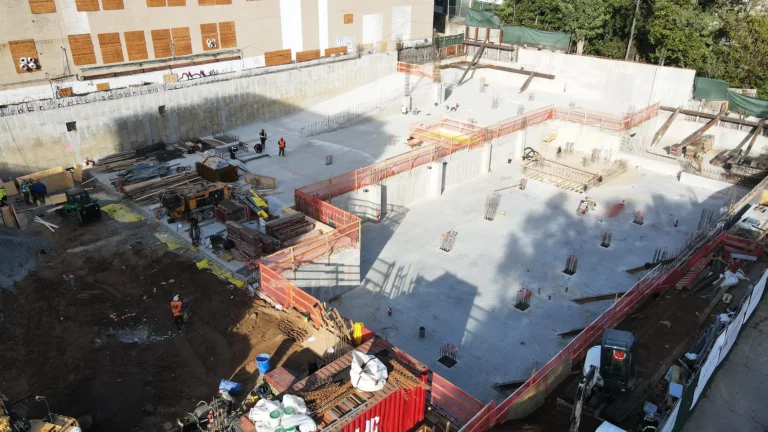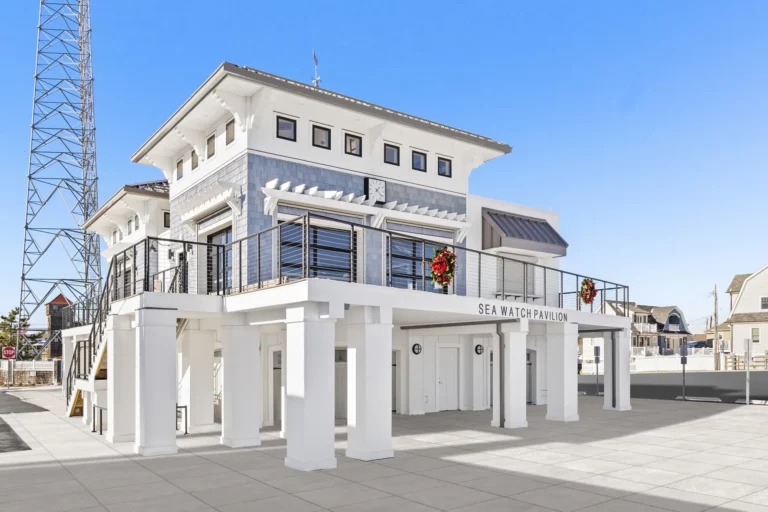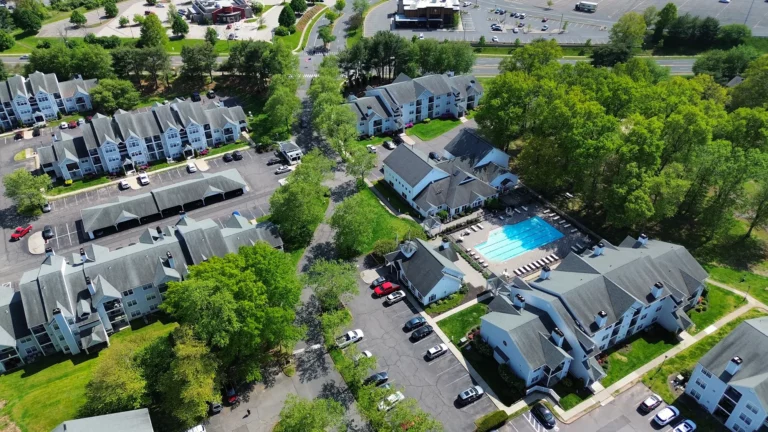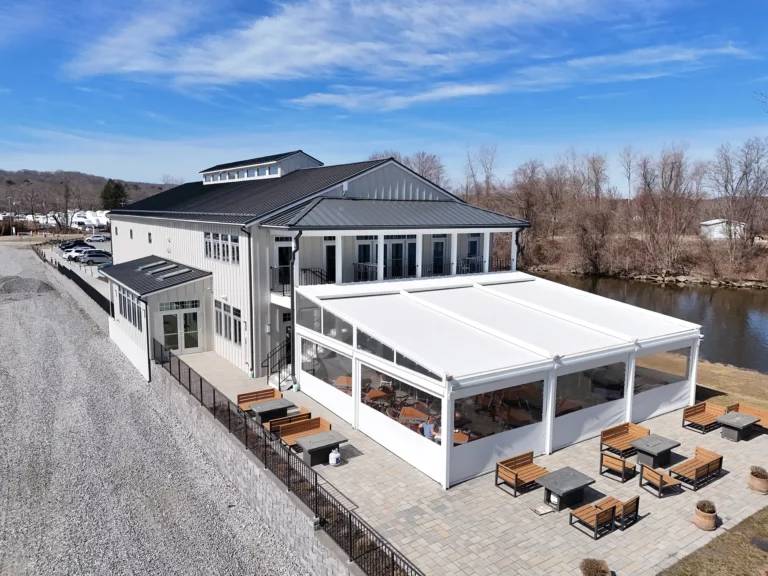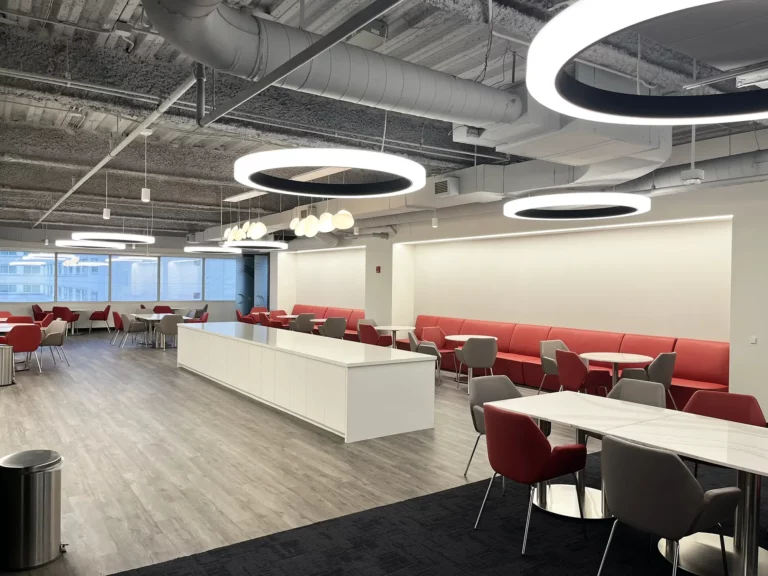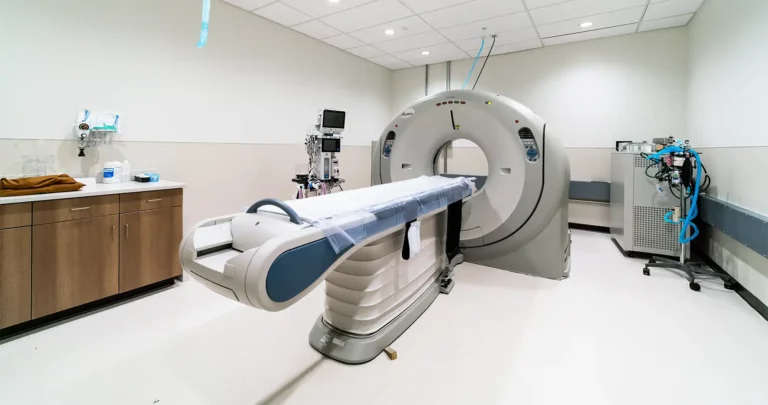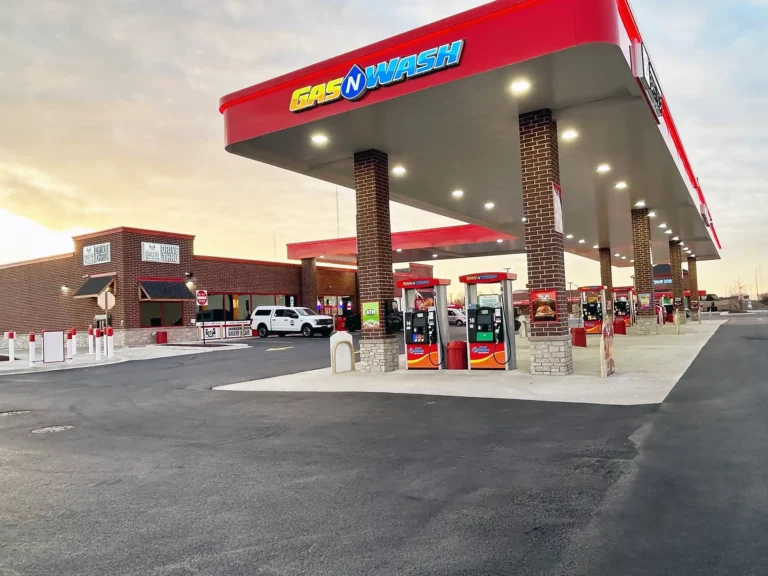Their mission statement sets an ambitious tone. In short, they promise to consistently deliver a trouble-free project experience; to be responsible and accountable for the performance of their work, and to focus efforts on achieving zero unsafe behaviors. Their track record speaks for itself; Langston Construction is listed in the top 50 fastest growing companies in South Carolina for 2021 (2nd Consecutive Year #27 2021, #13 2020), has been voted one of the best construction companies to work for by its employees in a nation-wide survey and the company has received a Presidential Safety Award for Outstanding Safety Performance from Carolina’s AGC every year (except one- 2019) since 1991. A remarkable achievement by any standards, but a particularly impressive one when operating within an industry notorious for throwing up banana skins around every corner. No doubt this comes as music to the ears of any prospective client, but for those who already enjoy a professional relationship with Langston, it comes as no surprise.
Established back in 1969, Langston Construction retains 86 employees at its premises in Piedmont, South Carolina. The company has a solid reputation for its craftmanship and reliability and is recognized for its unparalleled expertise in handling large environmental projects, including wastewater treatment plants, renovations and maintenance of commercial and industrial utilities and critical infrastructure upgrades. As evident in its dedication to training, its ethos appears very much team-orientated with an emphasis on life-long learning with heavy investment in its staff. This canny eye to the future may explain how two young green horns from vastly different backgrounds, who began their Langston careers as interns, eventually went on to head up the company.
Jim Roberts and Evan Sowell were Braswell’s proteges, hand-picked as potential candidates to take over the reins when retirement finally beckoned for the previous CEO of Langston, James Braswell. Did either think, when they first joined the company, they would end up running the show? “You know, we had discussions fairly early on in our careers here,” Evan explains in his lilting, southern drawl. “James saw something promising in us, that maybe we could be the future leaders as part of his succession plan. He was pretty foresightful, you know, picking two guys out to make that transition so he could start his retirement plan. It was a very well-thought-out plan.”
Sowell grew up in a rural, small town in South Carolina. His grandfather was a farmer and his father was an employee at the local telephone utility company. One of his first jobs was on a tobacco farm. In high school, he began working for a landscaping and tree removal firm, remaining there throughout his time at Presbyterian College where he gained a Bachelor of Science degree in Business Administration. “I did the internship at Langston during my senior year in college and came back directly after that. So, I’ve just always kind of been around people that were blue collar people who had a good work ethic; knew how to do things.” That was fifteen years ago and Sowell’s career has been in pretty good shape since.
Jim Roberts’ journey into construction, although not entirely straightforward, seems somewhat inevitable. He explains, in his equally charming lilt, how he went from intern to Principal at Langston Construction. “When I was born, probably from day two, I had a hammer in my hand. I actually started working on the gas line and in construction when I was eighteen and then I paid my way through college working on a grading crew, using heavy excavation machinery, and I spent a little time building houses. Then I came to work at Langston.” Jim majored first in landscape design and later returned to university to complete a Master’s in Construction. Does he think he’s a better builder for it? “I think the boots on the ground, hands-on experience was what taught me most of what I needed to know but I did learn a lot of things about the business side of the industry, things I had never being exposed to before so in that sense, the university education was very useful.”
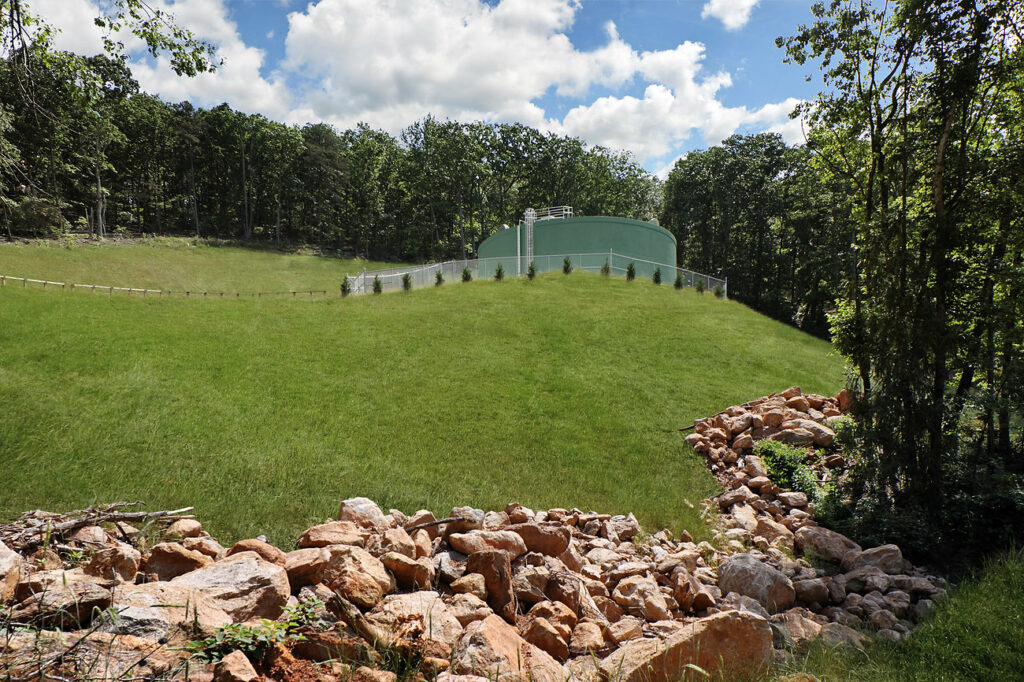
“Their most recent undertaking, the Hillandale Tank Construction Project, saw them tasked with building a new groundwater storage tank, located on Paris Mountain, capable of holding 1.25 million gallons of water.”
As it turned out, Braswell, recently inducted into the ACG Hall of Fame, was right on the money. Under the stewardship of these two unassuming men, the company has gone from strength to strength recording a healthy annual turnover of between 40 and 50 million dollars. Their most recent undertaking, the Hillandale Tank Construction Project, saw them tasked with building a new groundwater storage tank, located on Paris Mountain, capable of holding 1.25 million gallons of water – the equivalent capacity of two Olympic-sized swimming pools at 660,000 gallons of water each. The tank took roughly one year to design, and another year to construct. Roberts, as Principal, was closely involved in the project. “A large portion of this project was earth work. We basically had to cut through and blast out the backside of a mountain and build a shelf to construct the storage facility and then install the underground piping required.”
Does it ever feel daunting, taking on a project like that? Jim smiles at the notion. “No ma’am. Things can get a little overwhelming if you let them but we… we’re professionals. It just takes a little time to sit down and figure out how to do it. This was actually a client that we’ve worked for previously (Greenville Water). It was a public-bid project, and we had a relationship with the engineer. We knew when the project was coming out so we just pursued the hard-bid process, which in this case we won.”
Innovation and change are constants in the construction industry. To keep abreast with current trends, Langston employs a project management software company that continually upgrades its service offerings, but old-school methods prove useful too. Trade magazines, seminars and conventions all form part of their arsenal. Langston is also a founding member of a peer advisory group made up of eight contractors from over the country who meet twice a year to evaluate various systems and processes, offer recommendations, and to discuss the benefits of other technologies. “We need to keep our ears to the ground. You know, we’re always looking for what’s going to be the next big trend in our industry and how we might need to adapt our business to meet that,” Jim says.
The pair admit they rarely argue which must go a long way towards fostering a relaxed, healthy, workplace atmosphere. This bodes well for the rest of their team. “I think we have a great staff here,” Evan says. “We have a great group of professionals that take pride in their work. They understand that what we do is serious and that it’s important and we have to maintain a certain level of professionalism not only internally but externally, but you know, we still have fun.”
Where do you see the company headed to in the future? Evan takes this question. “We experienced a lot of growth over the last five years, really over the last decade. Part of our strategic plan is to see some incremental growth with a smaller base than what we’ve experienced in the last five years, more of a sustainability mode. But, having said that, when we do a good job for our clients, potentially, they ask us to do more work, so if that growth happens naturally, we’ll certainly manage it.”
Finally, I ask, albeit a little playfully, if they plan to stay together forever; they seem to balance each other out so well. Through hoots of laughter, they both reply.
“Well, as long as we’re working, yeah.”









